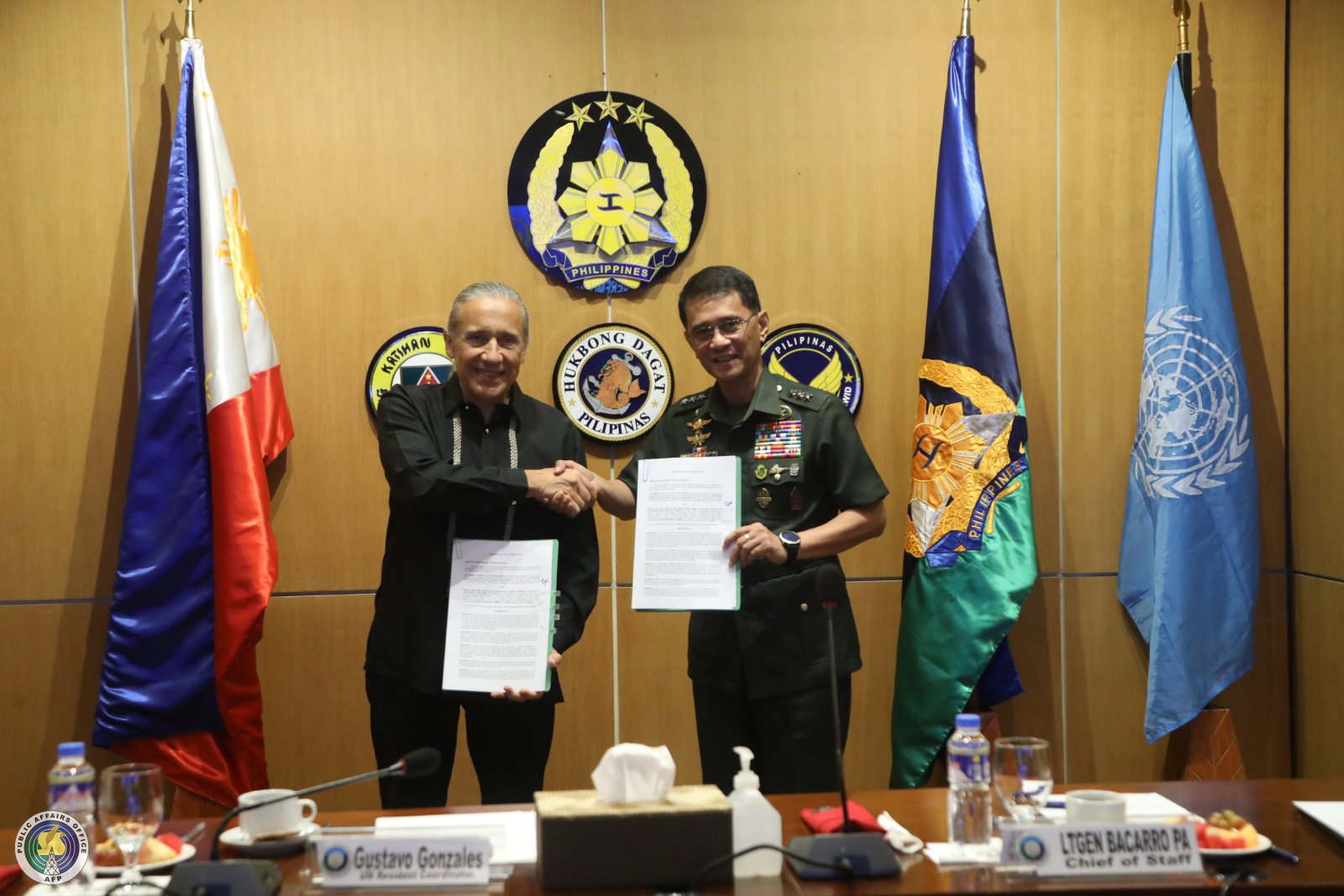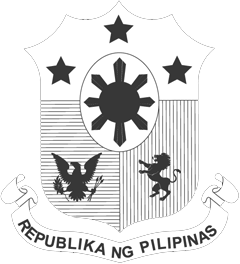
CAMP AGUINALDO, Quezon City— The Armed Forces of the Philippines (AFP) and the UN Office on Drugs and Crime (UNODC) signed a Declaration of Cooperation on December 12 at the General Headquarters here, setting a start of a partnership between the two institutions.
AFP Chief of Staff, LtGen Bartolome Vicente Bacarro signed the declaration for the AFP, with Mr. Oliver Georges-Lermet, Senior Policy Advisor and Head of UNODC in the Philippines.
The declaration is a non-legally binding instrument; however, the parties are expected to act in good faith concerning each other’s role stipulated in the document with the end view of having the areas of possible cooperation materialize into a formal and binding agreement.
The document covers common interests and areas of cooperation such as health, counter-illicit drugs, counterterrorism, transnational organized crime, anti-corruption, human rights, and criminal justice.
This involves the development and institutionalization of training and education on human rights-based approaches in the said areas. Joint research projects, internships, fellowships, and other capacity-building measures will also be tapped.
"The United Nations specifies that the security sector’s role is to enhance effective and accountable security for the state and its people, without discrimination and with full respect for human rights and the rule of law. This is imperative and this is why we are signing today this agreement," said Mr. Gustavo Gonzales, UN Resident Coordinator in the Philippines.
Meanwhile, LtGen Bacarro praised the signing, calling the document another initiative that will enhance the AFP’s human rights and good governance practices.
"The declaration of cooperation we have just signed is a very welcome addition to the array of human rights and good governance initiatives that we currently implement as it appeals to the values of professionalism and service excellence," LtGen Bacarro said.
"This declaration specifically covers the diverse yet very important areas such as drug problems, counterterrorism, transnational organized crime, anti-corruption, and criminal justice. It is in these areas, that we endeavor to formulate relevant education, training, and research programs, that will undoubtedly provide great benefits for our military institution," he added./// (Sgt Rey P Ambay PA, PAOAFP)

